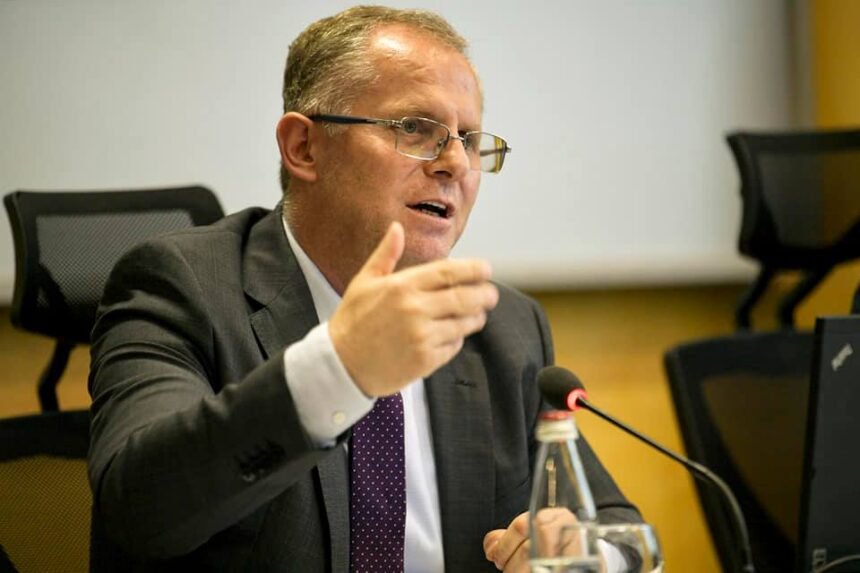Acting Deputy Prime Minister of Kosovo and chief negotiator in the dialogue with Serbia, Besnik Bislimi, has stated that Kosovo has never signed any agreement with Serbia regarding the Association of Serb-majority Municipalities (ASM). Speaking to Deutsche Welle, Bislimi emphasized that what existed was only a transactional agreement for normalization of relations, not a formal commitment to establishing the ASM.
“Kosovo never had an agreement for the Association. What we had was a deal for normalization — a type of give-and-take agreement,” said Bislimi.
According to him, Serbia’s key demands in the Basic Agreement included:
- The creation of the ASM
- A guarantee that Kosovo’s army would not enter the northern border areas without prior coordination with KFOR
- The opening of EU accession talks for Serbia
In contrast, Kosovo had only two key requests:
- To face no further obstacles in its European integration process
- The closure of Serbia’s parallel structures operating in Kosovo
Bislimi pointed out that Kosovo received nothing from the agreement, while Serbia benefited quickly.
“Within five weeks of signing, Serbia had already received two-thirds of what it asked for. The EU opened accession talks with Serbia shortly after the deal,” he said.
He also highlighted a pre-existing letter sent by then-Prime Minister Hashim Thaçi to NATO’s Secretary General, pledging not to send Kosovo’s army to the north without KFOR’s consent — a concession made before the agreement was even signed.
EU Faces Criticism for Uneven Pressure in Kosovo-Serbia Dialogue
Bislimi criticized the European Union for failing to pressure Serbia to fulfill its commitments, particularly to dismantle its illegal governance structures in Kosovo.
“Instead of insisting that Serbia delivers even 10% of what it agreed to, the EU is pressuring Kosovo to give up more — while we’ve gotten nothing in return,” he said.
Despite the agreement, Serbia has:
- Continued its blockades and derecognition campaign against Kosovo
- Voted against Kosovo’s membership in the Council of Europe
- Expanded parallel structures, rather than shutting them down
Bislimi concluded by questioning the EU’s silence and lack of reciprocity enforcement, saying that Serbia had benefited without fully committing, while Kosovo remains empty-handed.







